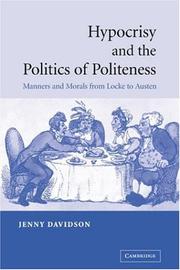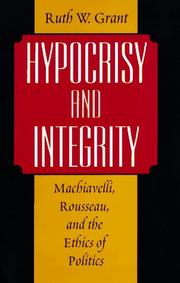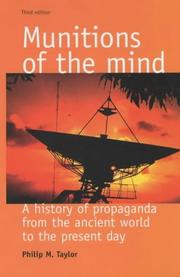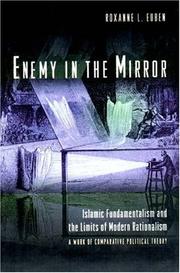| Listing 1 - 10 of 13 | << page >> |
Sort by
|
Book
ISBN: 0822372398 0822369362 0822369516 Year: 2017 Publisher: Durham : Duke University Press,
Abstract | Keywords | Export | Availability | Bookmark
 Loading...
Loading...Choose an application
- Reference Manager
- EndNote
- RefWorks (Direct export to RefWorks)
In A Theory of Regret Brian Price contends that regret is better understood as an important political emotion than as a form of weakness. Price shows how regret allows us to see that our convictions are more often the products of our perceptual habits than the authentic signs of moral courage that we more regularly take them to be. Regret teaches us to give up our expectations of what we think should or might occur in the future, and also the idea that what we think we should do will always be the right thing to do. Understood instead as a mode of thoughtfulness, regret helps us to clarify our will in relation to the decisions we make within institutional forms of existence. Considering regret in relation to emancipatory theories of thinking, Price shows how the unconditionally transformative nature of this emotion helps us become more sensitive to contingency and allows us, in turn, to recognize the steps we can take toward changing the institutions that shape our lives.
Regret. --- Emotions --- Philosophy --- Aristotle --- Bureaucracy --- Hypocrisy --- Jacques Derrida --- Logic --- Martin Heidegger
Book
ISBN: 1800345305 Year: 2020 Publisher: Liverpool : Liverpool University Press,
Abstract | Keywords | Export | Availability | Bookmark
 Loading...
Loading...Choose an application
- Reference Manager
- EndNote
- RefWorks (Direct export to RefWorks)
Emilia Pardo Bazán, the most prolific and influential Spanish female writer of the nineteenth century, was a very controversial figure, vilified for her embracement of naturalism and her robust feminist stance.When Insolación was published in 1889 it provoked a litany of negative comments and personal insults. This subtle, psychological novel, drawing on many aspects of its author's personal life, deals with the relationship between Asís, a respectable Galician widow, and Pacheco, a feckless womaniser from Andalucía. Although they scarcely know each other, Asís accepts Pacheco's invitation to visit the San Isidro Fair, where a heady cocktail of sun, alcohol and revelry causes her to behave in an uncharacteristic manner.Insolación explores the conflict between Asís's self-recrimination and concern for the 'qué dirán' and her nascent sexuality. Finally, despite her determination to banish Pacheco from her mind and her intention to go back to Galicia, the couple sleep together and decide to marry.The perceived promiscuity of this work of fiction scandalised the reading public as well as many leading critics. Pereda considered Asís's behaviour reprehensible and Clarín dismissed the novel as a pseudo-erotic boutade. Nowadays, Insolación is recognised as an important novel.
Man-woman relationships --- reputation --- gender inequality --- heredity --- feminism --- jealousy --- naturalism --- determinism --- psychological --- hypocrisy --- nineteenth-century feminism --- catholicism --- regional differences --- environmental determinism

ISBN: 2760317404 2760326950 2760305813 9782760305816 Year: 2004 Publisher: Les Presses de l’Université d’Ottawa | University of Ottawa Press
Abstract | Keywords | Export | Availability | Bookmark
 Loading...
Loading...Choose an application
- Reference Manager
- EndNote
- RefWorks (Direct export to RefWorks)
Canadienne, Parisienne, musicienne, écrivaine de rénommée internationale, Nancy Huston séduit aussi bien par ses essais provocateurs que par ses romans audacieux. Vivant entre deux langues et deux cultures, elle a conquis tant les publics francophone qu'anglophone. La narratrice d'Instruments des ténèbres formule cette phrase troublante : « Pas de vision sans division. Je ne cesse de comparer, combiner, séduire, traduire, trahir. J'ai le coeur et le cerveau fendus, comme les sabots du Malin. Anglais, français. » C'est avec cette citation comme point de départ que cet ouvrage propose une v
Doubles in literature. --- Huston, Nancy, 1953- -- Criticism and interpretation. --- Hypocrisy in literature. --- Romance Literatures --- Languages & Literatures --- French Literature --- Huston, Nancy, --- Criticism and interpretation. --- Doppelgänger in literature --- Doppelgängers in literature --- Split self in literature --- Houston, Nancy, --- Doubles in literature --- Hypocrisy in literature --- 840 "19" HUSTON, NANCY --- Franse literatuur--20e eeuw. Periode 1900-1999--HUSTON, NANCY --- art --- duplicité --- littérature --- francophone --- Nancy Huston --- anglophone --- Beausire, Louise,

ISBN: 1283976072 0226142256 9780226142258 9780226142227 0226142221 9780226142241 0226142248 Year: 2005 Publisher: Chicago, Ill. The University of Chicago Press
Abstract | Keywords | Export | Availability | Bookmark
 Loading...
Loading...Choose an application
- Reference Manager
- EndNote
- RefWorks (Direct export to RefWorks)
Inspired by a series of visions, Francisca de los Apóstoles (1539-after 1578) and her sister Isabella attempted in 1573 to organize a beaterio, a lay community of pious women devoted to the religious life, to offer prayers and penance for the reparation of human sin, especially those of corrupt clerics. But their efforts to minister to the poor of Toledo and to call for general ecclesiastical reform were met with resistance, first from local religious officials and, later, from the Spanish Inquisition. By early 1575, the Inquisitional tribunal in Toledo had received several statements denouncing Francisca from some of the very women she had tried to help, as well as from some of her financial and religious sponsors. Francisca was eventually arrested, imprisoned by the Inquisition, and investigated for religious fraud. This book contains what little is known about Francisca-the several letters she wrote as well as the transcript of her trial-and offers modern readers a perspective on the unique role and status of religious women in sixteenth-century Spain. Chronicling the drama of Francisca's interrogation and her spirited but ultimately unsuccessful defense, The Inquisition of Francisca-transcribed from more than three hundred folios and published for the first time in any language-will be a valuable resource for both specialists and students of the history and religion of Spain in the sixteenth century.
Trials (Heresy) --- Inquisition --- Holy Office --- Autos-da-fé --- Heresy --- History --- Francisca, --- Francisca de los Apóstoles --- francisca de los apostoles, beata, pious devotion to god, christianity, christians, religious, religion, faith, catholics, catholicism, reformer, spanish inquisition, orthodoxy, spain, spiritual visions, poverty, inequality, hypocrisy, corruption, mysticism, possession, inquisitorial tribunals, prayers, theology, theological, human sin, arrested, imprisonment, 16th century, trial, defense, interrogation. --- Heretic movements --- Religious communities --- Members of congregations --- Book

ISBN: 0521835232 0511196040 9780511196041 0511193998 1107149754 1280477962 0511195389 0511327145 0511484178 0511194730 0521047382 Year: 2004 Publisher: Cambridge : Cambridge University Press,
Abstract | Keywords | Export | Availability | Bookmark
 Loading...
Loading...Choose an application
- Reference Manager
- EndNote
- RefWorks (Direct export to RefWorks)
In Hypocrisy and the Politics of Politeness, Jenny Davidson considers the arguments that define hypocrisy as a moral and political virtue in its own right. She shows that these were arguments that thrived in the medium of eighteenth-century Britain's culture of politeness. In the debate about the balance between truthfulness and politeness, Davidson argues that eighteenth-century writers from Locke to Austen come down firmly on the side of politeness. This is the case even when it is associated with dissimulation or hypocrisy. These writers argue that the open profession of vice is far more dangerous for society than even the most glaring discrepancies between what people say in public and what they do in private. This book explores what happens when controversial arguments in favour of hypocrisy enter the mainstream, making it increasingly hard to tell the difference between hypocrisy and more obviously attractive qualities like modesty, self-control and tact.
Bienséance dans la littérature --- Conditions morales dans la littérature --- Courtesy in literature --- Ethics in literature --- Ethiek in de literatuur --- Ethique dans la littérature --- Etiquette dans la Litérature --- Etiquette in de literatuur --- Etiquette in literature --- Huichelarij in de literatuur --- Hypocrisie dans la littérature --- Hypocrisie in de literatuur --- Hypocrisy in literature --- Moral conditions in literature --- Moraliteit in de literatuur --- Morals in literature --- Schijnheiligheid in de literatuur --- Wellevendheid in de literatuur --- Courtesy in literature. --- English literature --- Ethics in literature. --- Etiquette in literature. --- Hypocrisy in literature. --- Literature and society --- Moral conditions in literature. --- History and criticism. --- History --- Austen, Jane --- Ethics --- Locke, John --- 18th century --- History and criticism --- England --- Austen, Jane, --- Locke, John, --- Ao-ssu-ting, --- Ao-ssu-ting, Chien, --- Aosiding, --- Aosiding, Jian, --- Āsṭin̲, Jēn̲, --- Austenová, Jane, --- Osten, Dzheĭn, --- Ostin, Dzhein, --- Lady, --- Author of Sense and Sensibility, --- Остен, Джейн, --- Остен, Джейм, --- אוסטן, ג׳יין --- אוסטן, ג׳יין, --- أوستن، جين، --- Ethics. --- Arts and Humanities --- Literature --- Philanthropus, --- Lokk, Dzhon, --- Lūk, Jūn, --- Lo-kʻo, --- Locke, Giovanni, --- Lock, --- Lock, John, --- Rokku, Jon, --- לוק, י׳ון,

ISBN: 1281430439 9786611430436 0226305929 9780226305929 0226305821 0226305848 9780226305844 0226305848 9780226305820 0226305821 Year: 1997 Publisher: Chicago : University of Chicago Press,
Abstract | Keywords | Export | Availability | Bookmark
 Loading...
Loading...Choose an application
- Reference Manager
- EndNote
- RefWorks (Direct export to RefWorks)
Questioning the usual judgements of political ethics, Ruth W. Grant argues that hypocrisy can actually be constructive while strictly principled behavior can be destructive. Hypocrisy and Integrity offers a new conceptual framework that clarifies the differences between idealism and fanaticism while it uncovers the moral limits of compromise. "Exciting and provocative. . . . Grant's work is to be highly recommended, offering a fresh reading of Rousseau and Machiavelli as well as presenting a penetrating analysis of hypocrisy and integrity."-Ronald J. Terchek, American Political Science Review "A great refreshment. . . . With liberalism's best interests at heart, Grant seeks to make available a better understanding of the limits of reason in politics."-Peter Berkowitz, New Republic
Political ethics. --- Compromise (Ethics) --- Hypocrisy. --- Ethics --- Ethics, Political --- Ethics in government --- Government ethics --- Political science --- Politics, Practical --- Civics --- Truthfulness and falsehood --- Moral and ethical aspects --- Machiavelli, Niccolò, --- Rousseau, Jean-Jacques, --- Rouseau, Jan Jakub, --- Russo, Zhan Zhak, --- Rousseau, John James, --- Rūssū, Jān Jāk, --- Lu-so, --- Ru-xô, Giăng-Giá̆c, --- Rousseau, Jean Jaques, --- Rousseau, Jean Jeacques, --- Rousseau, J. J. --- Rusō, Jan Jakku, --- Rousseau, Gian Giacomo, --- Ruso, Z'an Z'aḳ, --- Rūcō, --- Citoyen de Genève, --- Citizen of Geneva, --- Roussō, --- Rousseau, --- Rūssō, --- Rousseau, Johann Jacob, --- Руссо, Жан-Жак, --- רוסא, זשאן־זשאק --- רוסא, י׳ן י׳ק, --- רוסו, זאאן זאאק, --- רוסו, ז׳אן־ז׳אק, --- روسو، چان چاك --- روسو، ژان ژاك --- 卢梭, --- Rousseau, Juan Jacobo, --- Rousseau, G. G. --- Ruso, Jan Jak, --- Rūsaw, Zhān Zhāk, --- Rūsū, Zhān Zhāk, --- マキアヴェルリ --- Rousseau, Jean-Jacques --- politics, ethics, rousseau, machiavelli, power, society, control, government, integrity, hypocrisy, virtue, character, politicians, rule, idealism, fanaticism, compromise, morality, nonfiction, philosophy, political science, reason, honesty, moliere, prudence, deception, corruption, dependence, vanity, rationality, transparency, lying, misrepresentation, issues, candidates.

ISBN: 0226768600 9786613150837 0226768619 1283150832 9780226768618 9781283150835 6613150835 9780226768601 Year: 2003 Publisher: Chicago : University of Chicago Press,
Abstract | Keywords | Export | Availability | Bookmark
 Loading...
Loading...Choose an application
- Reference Manager
- EndNote
- RefWorks (Direct export to RefWorks)
Today we consider privacy a right to be protected. But in eighteenth-century England, privacy was seen as a problem, even a threat. Women reading alone and people hiding their true thoughts from one another in conversation generated fears of uncontrollable fantasies and profound anxieties about insincerity. In Privacy, Patricia Meyer Spacks explores eighteenth-century concerns about privacy and the strategies people developed to avoid public scrutiny and social pressure. She examines, for instance, the way people hid behind common rules of etiquette to mask their innermost feelings and how, in fact, people were taught to employ such devices. She considers the erotic overtones that privacy aroused in its suppression of deeper desires. And perhaps most important, she explores the idea of privacy as a societal threat-one that bred pretense and hypocrisy in its practitioners. Through inspired readings of novels by Defoe, Richardson, Fielding, and Sterne, along with a penetrating glimpse into diaries, autobiographies, poems, and works of pornography written during the period, Spacks ultimately shows how writers charted the imaginative possibilities of privacy and its social repercussions. Finely nuanced and elegantly conceived, Spacks's new work will fascinate anyone who has relished concealment or mourned its recent demise.
Geheim in de literatuur --- Ik in de literatuur --- Moi dans la littérature --- Privacy in de literatuur --- Privacy in literature --- Secrecy in literature --- Secret dans la littérature --- Self in literature --- Vie privée dans la littérature --- English fiction --- Privacy in literature. --- Secrecy in literature. --- Self in literature. --- History and criticism. --- English fiction -- 18th century -- History and criticism. --- English fiction - 18th century - History and criticism. --- English --- Languages & Literatures --- English Literature --- History and criticism --- Soi dans la littérature --- Zelf in de literatuur --- 18th century --- 18th century, 1900s, history, historical, time period, english, humanities, college, university, higher ed, academic, scholarly, research, privacy, rights, england, united kingdom, uk, fear, anxiety, emotions, insincerity, sincerity, public, social studies, society, pressure, hypocrisy, erotic, desire, novels, close reading, analysis, defoe, richardson, fielding, sterne, diary, autobiography, poetry, pornography, sex, propriety.

ISBN: 1847790925 1280734655 9786610734658 1423706633 9781423706632 9781847790927 9780719067679 0719067677 9780719067662 0719067669 9781280734656 Year: 2003 Publisher: Manchester ; New York : New York : Manchester University Press ; Distributed exclusively in the USA by Palgrave,
Abstract | Keywords | Export | Availability | Bookmark
 Loading...
Loading...Choose an application
- Reference Manager
- EndNote
- RefWorks (Direct export to RefWorks)
A classic work, Munitions of the mind traces how propaganda has formed part of the fabric of conflict since the dawn of warfare, and how in its broadest definition it has also been part of a process of persuasion at the heart of human communication. Stone monuments, coins, broadsheets, paintings and pamphlets, posters, radio, film, television, computers and satellite communications - propaganda has had access to ever more complex and versatile media." "This third edition has been revised and expanded to include a new preface, new chapters on the Gulf War, information age conflict in the post-Cold War era, and the world after the terrorist attacks of September 11. It also offers a new epilogue and comprehensive bibliographical essay." "The range of this book, as well as the analysis it offers, makes it an ideal text for all international courses covering media and communications studies, cultural history, military history and politics. It will prove accessible to the general reader."
Propaganda. --- Oorlog. --- Terrorism and mass media. --- State-sponsored terrorism. --- Propaganda, Anti-American. --- Society and social sciences. --- SOCIAL SCIENCE --- Politics and government. --- Political control and freedoms. --- Terrorisme et medias. --- Terrorisme d'État. --- Propagande antiamericaine. --- Propagande --- Propaganda --- Government violence --- Governmental violence --- State-sponsored violence --- State terrorism --- Violence, Governmental --- Violence, State-sponsored --- Political atrocities --- Terrorism --- Mass media and terrorism --- Mass media --- Communication in politics --- Political psychology --- Social influence --- Advertising --- Persuasion (Psychology) --- Psychological warfare --- Public relations --- Publicity --- Social pressure --- Behavioral sciences --- Human sciences --- Sciences, Social --- Social science --- Social studies --- Civilization --- Anti-American propaganda --- General. --- Histoire. --- History. --- Terrorism. --- Propaganda History --- History --- Radioactive Terrorism --- Terrorism, Radioactive --- Persuasive Communication --- Psychological Warfare --- Middle Ages. --- ancient Greeks. --- civilization. --- civilized society. --- humanity. --- hypocrisy. --- peace propagandists. --- propaganda. --- scrutiny. --- terrorism. --- violence. --- wars.

ISBN: 0691058431 069105844X 1282753819 9786612753817 1400823234 140081152X 9781400823239 9780691058443 9780691058436 Year: 1999 Publisher: Princeton, NJ : Princeton University Press,
Abstract | Keywords | Export | Availability | Bookmark
 Loading...
Loading...Choose an application
- Reference Manager
- EndNote
- RefWorks (Direct export to RefWorks)
A firm grasp of Islamic fundamentalism has often eluded Western political observers, many of whom view it in relation to social and economic upheaval or explain it away as an irrational reaction to modernity. Here Roxanne Euben makes new sense of this belief system by revealing it as a critique of and rebuttal to rationalist discourse and post-Enlightenment political theories. Euben draws on political, postmodernist, and critical theory, as well as Middle Eastern studies, Islamic thought, comparative politics, and anthropology, to situate Islamic fundamentalist thought within a transcultural theoretical context. In so doing, she illuminates an unexplored dimension of the Islamist movement and holds a mirror up to anxieties within contemporary Western political thought about the nature and limits of modern rationalism--anxieties common to Christian fundamentalists, postmodernists, conservatives, and communitarians. A comparison between Islamic fundamentalism and various Western critiques of rationalism yields formerly uncharted connections between Western and Islamic political thought, allowing the author to reclaim an understanding of political theory as inherently comparative. Her arguments bear on broad questions about the methods Westerners employ to understand movements and ideas that presuppose nonrational, transcendent truths. Euben finds that first, political theory can play a crucial role in understanding concrete political phenomena often considered beyond its jurisdiction; second, the study of such phenomena tests the scope of Western rationalist categories; and finally, that Western political theory can be enriched by exploring non-Western perspectives on fundamental debates about coexistence.
Islamic fundamentalism --- Rationalism --- Islamic countries --- Politics and government --- Islamic fundamentalism. --- Rationalism. --- #SBIB:031.IO --- #SBIB:321H91 --- #SBIB:316.331H330 --- Knowledge, Theory of --- Religion --- Belief and doubt --- Deism --- Free thought --- Realism --- Fundamentalism, Islamic --- Islamism --- Islam --- Religious fundamentalism --- Niet-specifieke politieke en sociale theorieën vanaf de 19e eeuw: islam, Arabisch nationalisme --- Godsdienst en politiek: algemeen --- -Muslim countries --- Politics and government. --- Islamic countries - Politics and government --- Alterity. --- Ambiguity. --- Anachronism. --- Anathema. --- Anthropomorphism. --- Anti-Oedipus. --- Anti-Western sentiment. --- Anti-imperialism. --- Antinomy. --- Apologetics. --- Assassination. --- Authoritarianism. --- Clash of Civilizations. --- Communitarianism. --- Criticism. --- Critique of ideology. --- Critique. --- Deductive reasoning. --- Deism. --- Demagogue. --- Despotism. --- Dialectical materialism. --- Dichotomy. --- Dictatorship. --- Disadvantage. --- Disenchantment. --- Emotivism. --- End of history. --- Ethnocentrism. --- Excommunication. --- False consciousness. --- False god. --- God. --- Great Satan. --- Hannah Arendt. --- Heresy. --- Heterodoxy. --- Hostility. --- Hypocrisy. --- Ideology. --- Idolatry. --- Impediment (canon law). --- Imperialism. --- Infidel. --- Injunction. --- Inner-worldly asceticism. --- Irrationality. --- Irreligion. --- Islam. --- Islamic extremism. --- Islamism. --- Islamization of knowledge. --- Jamal ad-Din al-Afghani. --- Jihadism. --- Legitimation crisis. --- Manichaeism. --- Materialism. --- Militarism. --- Modernity. --- Nihilism. --- Obscurantism. --- Oppression. --- Orientalism. --- Overreaction. --- Paradox. --- Political Order in Changing Societies. --- Political alienation. --- Political aspects of Islam. --- Political decay. --- Political philosophy. --- Political prisoner. --- Politics. --- Postmodern philosophy. --- Postmodernism. --- Prejudice. --- Protest vote. --- Qutb. --- Radicalism (historical). --- Radicalization. --- Rashid Rida. --- Reactionary. --- Rebuttal. --- Reformism. --- Religion. --- Seditious conspiracy. --- Separate spheres. --- Separation of church and state. --- Sharia. --- Skepticism. --- Social criticism. --- Sovereignty. --- Spiritual crisis. --- Superstition. --- The End of Ideology. --- Truism. --- Vagueness. --- Vulnerability. --- Wahhabism. --- Yellow Peril.
Book
ISBN: 1280494204 9786613589439 1400841887 9781400841882 9780691119229 0691119228 9781280494208 Year: 2012 Publisher: Princeton, NJ : Princeton University Press,
Abstract | Keywords | Export | Availability | Bookmark
 Loading...
Loading...Choose an application
- Reference Manager
- EndNote
- RefWorks (Direct export to RefWorks)
Today, the term "Jewish self-hatred" often denotes a treasonous brand of Jewish self-loathing, and is frequently used as a smear, such as when it is applied to politically moderate Jews who are critical of Israel. In On the Origins of Jewish Self-Hatred, Paul Reitter demonstrates that the concept of Jewish self-hatred once had decidedly positive connotations. He traces the genesis of the term to Anton Kuh, a Viennese-Jewish journalist who coined it in the aftermath of World War I, and shows how the German-Jewish philosopher Theodor Lessing came, in 1930, to write a book that popularized "Jewish self-hatred." Reitter contends that, as Kuh and Lessing used it, the concept of Jewish self-hatred described a complex and possibly redemptive way of being Jewish. Paradoxically, Jews could show the world how to get past the blight of self-hatred only by embracing their own, singularly advanced self-critical tendencies--their "Jewish self-hatred.? Provocative and elegantly argued, On the Origins of Jewish Self-Hatred challenges widely held notions about the history and meaning of this idea, and explains why its history is so badly misrepresented today.
Self-hate (Psychology) --- Antisemitism --- Self-hatred (Psychology) --- Hate --- Self-perception --- Psychological aspects. --- Adage. --- Adolf Loos. --- Afrikan Spir. --- Alfred Kerr. --- Anti-Zionism. --- Anti-imperialism. --- Anti-nationalism. --- Antisemitism (authors). --- Antisemitism. --- Anxiety of influence. --- Bildung. --- Bildungsroman. --- Boris Groys. --- Buddenbrooks. --- Consciousness. --- Counter-revolutionary. --- Cultural pessimism. --- Defamation. --- Deportation. --- Edmund Husserl. --- Erudition. --- Erving Goffman. --- Feuilleton. --- Franz Kafka. --- Franz Werfel. --- Fritz Haarmann. --- German Forest. --- German nationalism. --- Germans. --- Gershom Scholem. --- Gustav Wyneken. --- Hans Gross. --- Hans Mayer. --- Hatred. --- Heinrich Heine. --- Heinrich von Kleist. --- Highbrow. --- His Family. --- Houston Stewart Chamberlain. --- Hugo Bettauer. --- Humiliation. --- Hypocrisy. --- Jacques Derrida. --- Jakob Wassermann. --- Jewish assimilation. --- Jewish guilt. --- Jews. --- Judaism. --- Karl Kraus (writer). --- Kurt Tucholsky. --- Lecture. --- Lessing. --- Ludwig Klages. --- Ludwig Wittgenstein. --- Martin Buber. --- Modern Paganism. --- Modernity. --- Moses Mendelssohn. --- Narrative. --- Novelist. --- Oedipus complex. --- On the Jewish Question. --- Oppression. --- Oswald Spengler. --- Otto Gross. --- Otto Weininger. --- Pacifism. --- Paul Heyse. --- Persecution. --- Pessimism. --- Philosophy. --- Pity. --- Pogrom. --- Polemic. --- Prejudice. --- Prostitution. --- Psychoanalysis. --- Rainer Maria Rilke. --- Ridicule. --- Rudolf Steiner. --- Satire. --- Self-consciousness. --- Self-criticism. --- Self-hating Jew. --- Self-hatred. --- Suggestion. --- Superiority (short story). --- The Decline of the West. --- The Other Hand. --- The Philosopher. --- The Pity of It All. --- Theodor Fritsch. --- Theodor Lessing. --- Theodor. --- Thomas Mann. --- Thought. --- Vladimir Nabokov. --- Walter Benjamin. --- Writing. --- Zionism.
| Listing 1 - 10 of 13 | << page >> |
Sort by
|

 Search
Search Feedback
Feedback About
About Help
Help News
News